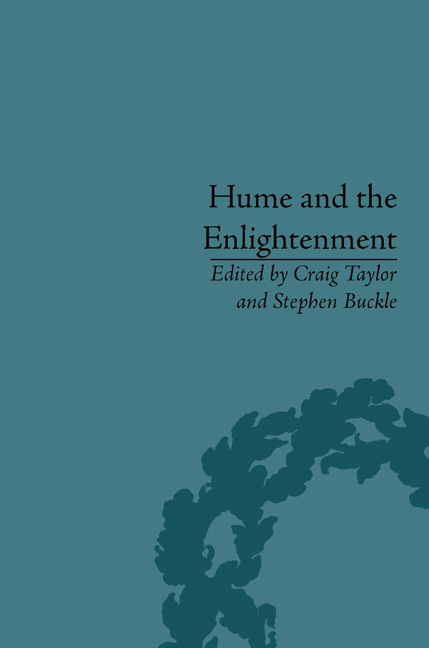Book contents
- Frontmatter
- CONTENTS
- Acknowledgements
- List of Contributors
- Abbreviations
- Introduction: Hume and his Intellectual Legacy
- 1 Hume and the Enlightenment
- 2 Will the Real Enlightenment Historian Please Stand Up? Catharine Macaulay versus David Hume
- 3 Philosophy, Historiography and the Enlightenment: A Response to Green
- 4 Hume's Enlightenment Aesthetics and Philosophy of Mathematics
- 5 Part 9 of Hume's Dialogues and ‘The Accurate Philosophical Turn of Cleanthes
- 6 ‘Strange Lengths’: Hume and Satire in the Dialogues Concerning Natural Religion
- 7 A Modern Malignant Demon? Hume's Scepticism with regard to Reason (Partly) Vindicated
- 8 Hume on Sympathy and Cruelty
- 9 Hume's Natural History of Justice
- 10 Hume and Rawls on the Stability of a Society's System of Justice
- 11 Can Hume's Impressions of Reflection Represent?
- 12 Mechanism and Thought Formation: Hume's Emancipatory Scepticism
- Notes
- Works Cited
- Index
7 - A Modern Malignant Demon? Hume's Scepticism with regard to Reason (Partly) Vindicated
- Frontmatter
- CONTENTS
- Acknowledgements
- List of Contributors
- Abbreviations
- Introduction: Hume and his Intellectual Legacy
- 1 Hume and the Enlightenment
- 2 Will the Real Enlightenment Historian Please Stand Up? Catharine Macaulay versus David Hume
- 3 Philosophy, Historiography and the Enlightenment: A Response to Green
- 4 Hume's Enlightenment Aesthetics and Philosophy of Mathematics
- 5 Part 9 of Hume's Dialogues and ‘The Accurate Philosophical Turn of Cleanthes
- 6 ‘Strange Lengths’: Hume and Satire in the Dialogues Concerning Natural Religion
- 7 A Modern Malignant Demon? Hume's Scepticism with regard to Reason (Partly) Vindicated
- 8 Hume on Sympathy and Cruelty
- 9 Hume's Natural History of Justice
- 10 Hume and Rawls on the Stability of a Society's System of Justice
- 11 Can Hume's Impressions of Reflection Represent?
- 12 Mechanism and Thought Formation: Hume's Emancipatory Scepticism
- Notes
- Works Cited
- Index
Summary
Introduction
The Enlightenment consists of many strands. One strand is the claim to have discovered indubitable foundations for our knowledge in reason or in experience. This strand, like many other strands, has its origins in pre-enlightenment thought. It loomed large because of the vicious conflict between the reformation and the counter-reformation. The conflict made the search for foundations which would resolve debates once and for all especially urgent. Another strand is the sceptical strand, which criticizes any attempt to claim to have discovered indubitable foundations for our knowledge. It also loomed large in the conflict between the reformation and counter-reformation. A third strand is the scientific revolution, which made it seem to some as if all features of the world were to become scientifically explicable.
Hume is sympathetic to the first strand. He often talks as if he thinks claims to knowledge should have indubitable foundations, and he searches for them in experience. However, he also sees that claims to indubitable knowledge have proved baseless and dangerous. He is strongly attracted to the sceptical strand because he grasps that searches for secure foundations have failed to produce indubitable results. He is also attracted to it because he understands that those who claim to have discovered secure foundations for religious beliefs have fostered fanaticism and helped produce disasters.
- Type
- Chapter
- Information
- Hume and the Enlightenment , pp. 105 - 116Publisher: Pickering & ChattoFirst published in: 2014



